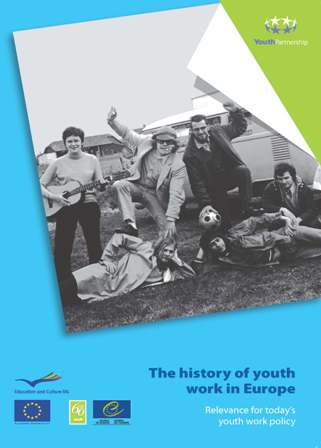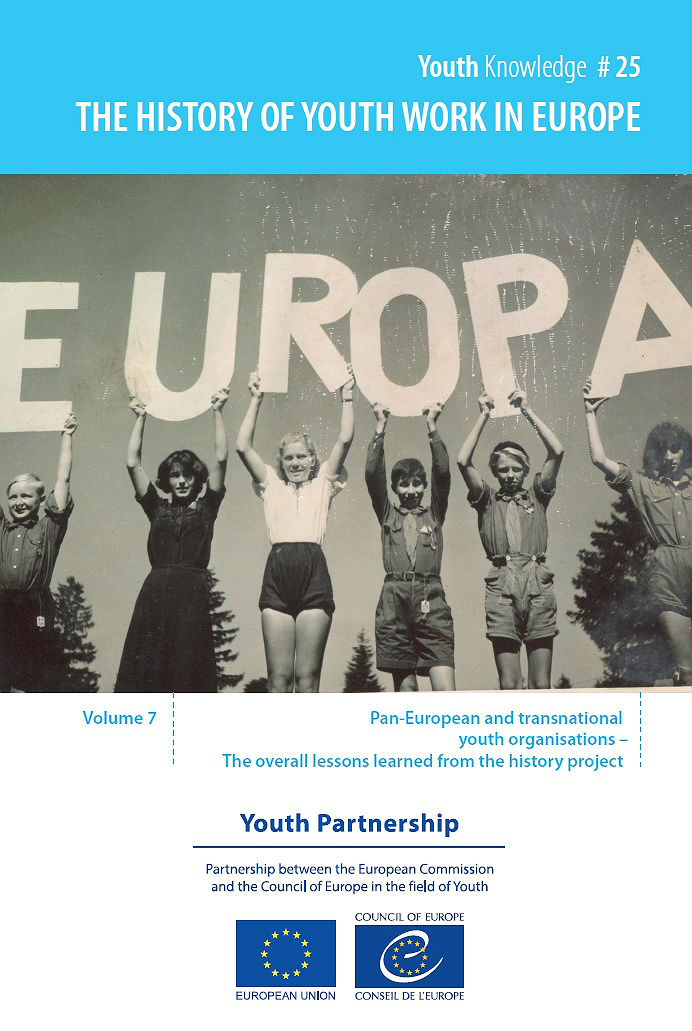The history of youth work in Europe and its relevance for youth policy today

Edited by Griet Verschelden, Filip Coussée, Tineke Van de Walle and Howard Williamson.
Council of Europe, 2009 978-92-871-6608-1
Youth work is a polyvalent and multi-faceted practice. It takes place in a wide range of settings, varies from unstructured activities to fairly structured programmes, reaches a diverse array of young people, touches upon many different themes and cuts across several other disciplines and practices. This versatility is one of the strengths of youth work, but at the same time it may lead to fragmentation and product vagueness.
In this book we take a historical perspective that aims to identify the close links between youth work developments and broader social, cultural and political developments. What are the beliefs and concepts that underpin youth work? How do they relate to the recurrent youth work paradox, that youth work produces active and democratic citizens but at the same time seems ineffective for young people who are excluded from active citizenship? Tracing back the roots of youth work and identifying different evolutions within and between countries help to initiate a fundamental discussion on modern-day youth work identity and to cope in a constructive way with the recurrent paradoxes of youth work.
The different authors highlight the youth work policies in Belgium (Flanders), Germany, England, Poland, Malta, France and Finland.
Download The history of youth work in Europe and its relevance for youth policy today >>
The history of youth work in Europe and its relevance for youth policy today is also available in Bulgarian

Council of Europe, 2019. 978-92-871-8965-3
Why have political, social or environmental causes often been behind the origin and evolution of youth organisations? Have other ideas been influential too? Why have some organisations expanded well beyond their countries of origin? To what extent have they held firm to their original values and purpose, and to what extent have they adapted and evolved in changing circumstances? How have they related to youth policy or youth work agendas? How vulnerable have they been to ideology, context or political influences? Which of their characteristics have persisted over time? These are some of the questions that are explored in this book, which draws on contributions from the last seminar on the history of transnational youth organisations and their relation to youth work today.
This book has three parts. The first explores the evolution of transnational youth organisations and movements over the past 100 years. The second adds two more country histories of youth work to the body of knowledge already established in earlier volumes in the series. The third and final part focuses on 12 “trilemmas” and reflections that have emerged from the 10-year History of Youth Work in Europe project. This anchors an invitation to the youth work community to consider and debate each trilemma, independently and in relation to each other, in the context of both the local environments of youth work delivery and across the wider European youth policy context, in anticipation of the 3rd European Youth Work Convention.
